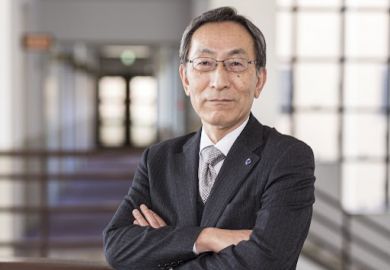Sector leaders are “broadly in favour” of a new Irish funding agency formed through the merger of two existing agencies, but questions remain over its leadership.
Research Ireland, or Taighde Éireann, amalgamates Science Foundation Ireland (SFI), which primarily funded science subjects with a focus on applied and industry-linked research, and the Irish Research Council (IRC), which funded scholarship across a broader range of disciplines.
The merger was first announced in 2022 by Simon Harris, the former research minister who later became taoiseach.
Patrick O’Donovan, Mr Harris’ successor, said that the new agency “has a founding principle of parity of esteem for all disciplines, all research types, and all career stages, which will be key to developing our capacity to respond to challenges, and our already strong international reputation for research excellence”.
Turlough Downes, professor of mathematics and astrophysics at Dublin City University and a former IRC board member, said he was “optimistic” about Research Ireland. “I think everybody’s broadly in favour of it, but everybody will also be a little bit nervous until it’s established itself and its norms,” he said.
“It’s been well recognised that Ireland has been pretty weak on fundamental research, mainly because of a lack of funding,” Professor Downes said, adding that the new agency “will address the weaknesses in fundamental research and in funding the arts, humanities and social sciences”.
Lisa Keating, director of research and innovation at the Irish Universities Association, said the sector could “really see [the] potential” of the new funder.
“In the past, there has been a disjointed approach, because budgets are tight and everybody’s looking for their own budget,” she said. “So what Research Ireland really needs to do is to show leadership in coordinating across the other research funders, in particular when it comes to making the business case for investment in research. Research Ireland and the Irish research system cannot reach their full potential without the required investment.”
For some academics, the leadership of Research Ireland has sparked concern. Philip Nolan, the former SFI director general, was originally announced as the chief executive of the new agency; however, earlier this year he was dismissed from his SFI role amid misconduct allegations, subsequently launching legal action to challenge his termination. The government declined to confirm whether Professor Nolan would still lead the new agency.
Mr O’Donovan announced the appointment of Celine Fitzgerald as interim chief executive “pending the recruitment of a new CEO on a permanent basis”.
Andrew Coogan, a neuroscientist and professor at Maynooth University, said of Mis Fitzgerald that it was “utterly remarkable that the incoming CEO of the national research funding agency appears to have no background in research”.
“I certainly hope that the formation of the new agency will be accompanied by a board composed more in line with international comparator agencies with respect to the proportion of members who are active researchers or who have extensive research experience,” he said.
The establishment of Research Ireland, sector leaders have stressed, must be accompanied by an increase in government funding. At present, Ireland’s investment in research and innovation is equivalent to 0.96 per cent of its gross domestic product, far below the European Union average of 2.24 per cent.
“There is some hope that the merger into the new agency will lead to a more integrated and efficient funding system [and] allow for a rebalancing between basic and applied research,” Professor Coogan said.
“However, if the total amount of funding available does not increase substantially, then it matters less how the pie is divided than that there is so little pie to begin with.”




